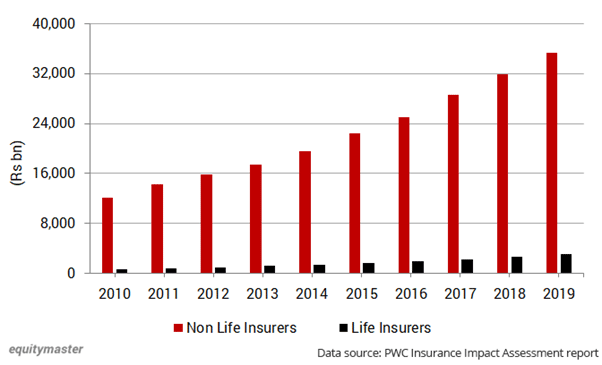6 Reasons Why Sensex Plunged 1,158 Points Today
Indian share markets remained in a bear grip for the fifth straight session today while the rupee hit an all-time low.
Benchmark indices extended losses amid a broader decline in equity markets following US consumer price data.
At the closing bell, the BSE Sensex plummeted 1,158 points, ending 2.14% lower.
Meanwhile, the NSE Nifty was down 359 points, ending at 15,808.
Wipro and HCL Technologies were among the top gainers today.
IndusInd Bank, Tata Steel, and Bajaj Finance were among the top losers today.
The broader markets ended deep in red as the BSE Mid Cap index slipped 2.2% while the BSE Small Cap index plunged 2%.
All sectoral indices ended in the red with stocks in the capital goods sector, the auto sector, and banking sector witnessing most of the selling.
The SGX Nifty was trading 2.2% lower at the time of writing.
The rupee is trading at 77.42 against the US$.
Gold prices are currently trading down by 0.2% at Rs 50,741 per 10 grams while silver is also down 1% at Rs 60,165 per kg.
Here are six factors why markets plunged today:
Weak global cues: Asian share markets ended deep in the red today after an overnight drop on Wall Street as investors fret over inflation and looming recession.
At the close in Tokyo, the Nikkei 225 declined 1.8%, while the Hang Seng plunged 2.2%. The shanghai composite dropped marginally by 0.1%.
US inflation data: The US consumer price index (CPI) rose slightly in Apr 2022, up 0.3%, still hovering near the hottest figure in over 40 years. This data doesn't contribute majorly to easing investor worries about future interest rate hikes, weighing on economic growth.
China's continued lockdown: Dozens of mainland Chinese cities, including the financial hub of Shanghai, have been locked down as authorities work to stamp out the coronavirus. For industries ranging from Big Tech to consumer goods, that's destroying both supply and demand.
Global growth concerns: Morgan Stanley has lowered its forecasts for India's economic growth in the next two fiscal years, saying a global slowdown, surging oil prices, and weak domestic demand would take a toll on Asia's third-largest economy.
Indian inflation data: The statistics ministry is scheduled to release Consumer Price Index (CPI) data for April at 5:30 PM today.
In a statement on 4 May, Reserve Bank of India Governor Shaktikanta Das said retail inflation for April is 'expected to be elevated,' having hit a 17-month high of 6.95% in March.
Sectoral check: All sectoral indices ended deep in the red. Banking stocks were the worst hit as the inflation data indicates future interest rate hikes.
The CPI data would indicate the RBI's course of action during the June Monetary Policy Meeting. It has been mandated to keep retail inflation in the range of 2-6%.
We will keep you updated on the latest developments in this space. Stay tuned.
In the latest developments from the IPO space, Supreme Court has refused to interfere in the ongoing IPO process of LIC and rejected interim relief.
While declining to grant interim relief, the bench said:
The IPO is ongoing and it is a matter wherein large investments have already been made, the bench observed during the hearing.
It would not be appropriate for the court to interfere in a matter of this nature at such a juncture.
The petitioners before the court were aggrieved by the government's decision to trade 5% of its holding in LIC through the IPO.
The petitioners seeking a halt on the IPO process came before the Supreme Court after their respective petitions were rejected by Madras and Bombay High Courts.
The apex court, however, issued notice on the petitions that challenge the passage of the Finance Act, 2021 as a money bill.
It was the Finance Act of 2021 and the amendments to the LIC Act made accordingly that facilitated the ongoing IPO.
The court said that the question of passage of Finance Act 2021 as a money bill and amendments to LIC Act is a question 'that needs further reconsideration'.
Speaking of the insurance sector, have a look at the chart below which shows the investment assets of non-life insurers and life insurers over the past 10 years:
Investment Assets of Non-Life Insurers 11x That of Life Insurers

Moving on to news from the energy sector, Stressed Power plants get a helping hand from the government.
The government has directed state-run Power Finance Corp. (PFC) and REC Ltd to offer short-term loans to stressed power plants using imported coal to help them restart production.
The move comes as an effort to tackle a power crisis that has triggered widespread blackouts and threatens to hurt economic growth.
Separately, the coal ministry may regulate fuel supply to states whose discoms continue to buy cheaper electricity from domestic coal-fuelled plants despite agreeing to buy power from imported coal-fired plants.
Rising global fuel prices have made electricity from plants that rely on imported coal more expensive, crimping demand from the country's struggling power distribution companies.
According to data from the Central Electricity Authority (CEA), the 173 power plants that it tracks have coal stock close to only around a third of the required stock.
A total of 85 power plants fuelled by domestic coal had less than a fourth of their prescribed fuel stock and were at a critical level.
Stay tuned for more developments from this space.
Disclosure: Equitymaster Agora Research Private Limited (Research Analyst) bearing Registration No. INH000000537 (hereinafter referred as 'Equitymaster') is an independent equity research ...
more


